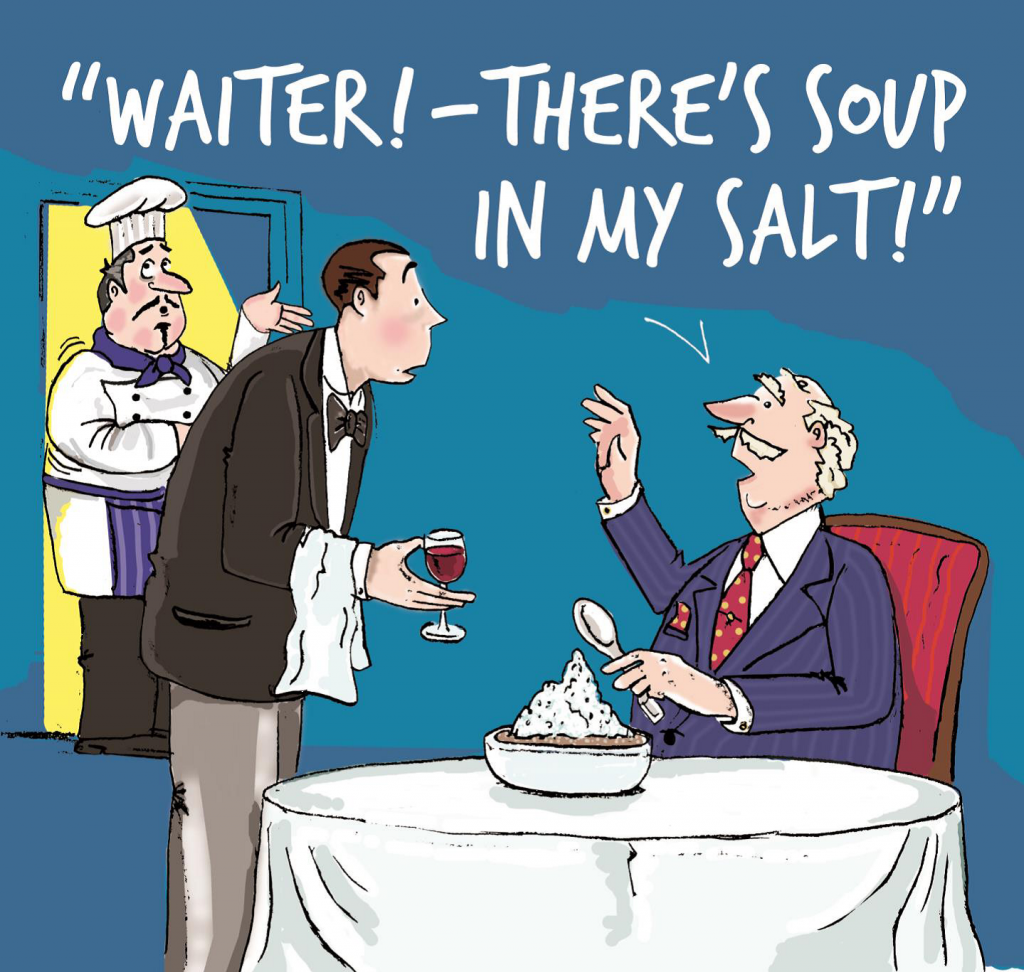We all need a little bit of sodium because it helps keep your body fluids at the right concentration and is needed for muscle and nerve activity. Salt (sodium chloride) is the main source of sodium in the UK diet, but the majority of us eat much more salt than we need. Eating too much salt over time is linked with high blood pressure, which can lead to serious problems such as heart disease or stroke.
Salt recommendations
On average, adults in the UK eat about 8.1g of salt (3.2g sodium) a day. This may not sound like much, but to reduce the risk of high blood pressure, it is recommended that adults should not be eating more than 6g of salt (2.4g sodium) a day.
Salt intakes should be much lower than this for babies and children. Babies under 12 months old should have less than 1g of salt a day. The daily recommended maximum amount of salt children should eat depends on their age:
1 to 3 years – 2g of salt a day (0.8g sodium)
4 to 6 years – 3g of salt a day (1.2g sodium)
7 to 10 years – 5g of salt a day (2g sodium)
11 years and over – 6g of salt a day (2.4g sodium)
Salty tips
As salt is often a ‘hidden’ ingredient in many foods, it can sometimes be difficult to work out how much you are eating. Some foods, such as crisps, olives, cheese and bacon, taste obviously salty but other foods can contribute a lot of salt to our diet without us realising.
The salt we add during cooking and at the table makes up only a small amount of salt in our diets. Around 75% of the salt we eat comes from ready-made and processed foods, such as bread, breakfast cereals, soups and baked beans. Even sweet things, such as biscuits, can have salt added to them.
To keep track of your salt intake, get into the habit of reading the nutritional information on food labels, where you will find the salt content for a 100g serving. Try to eat those foods that are high in salt less often or in smaller amounts. As a rough guide:
a high amount of salt is more than 1.5g per 100g
a low amount of salt is 0.3g per 100g
See tips for a lower-salt diet for more information and advice on reducing your salt intake.
Salt and effervescent tablets
Effervescent vitamin supplements or effervescent painkillers can contain up to 1g of salt per tablet. Consider changing to a non-effervescent tablet, particularly if you have been advised to watch or reduce your salt intake. Talk to your GP about alternatives if you have been prescribed these medicines.

